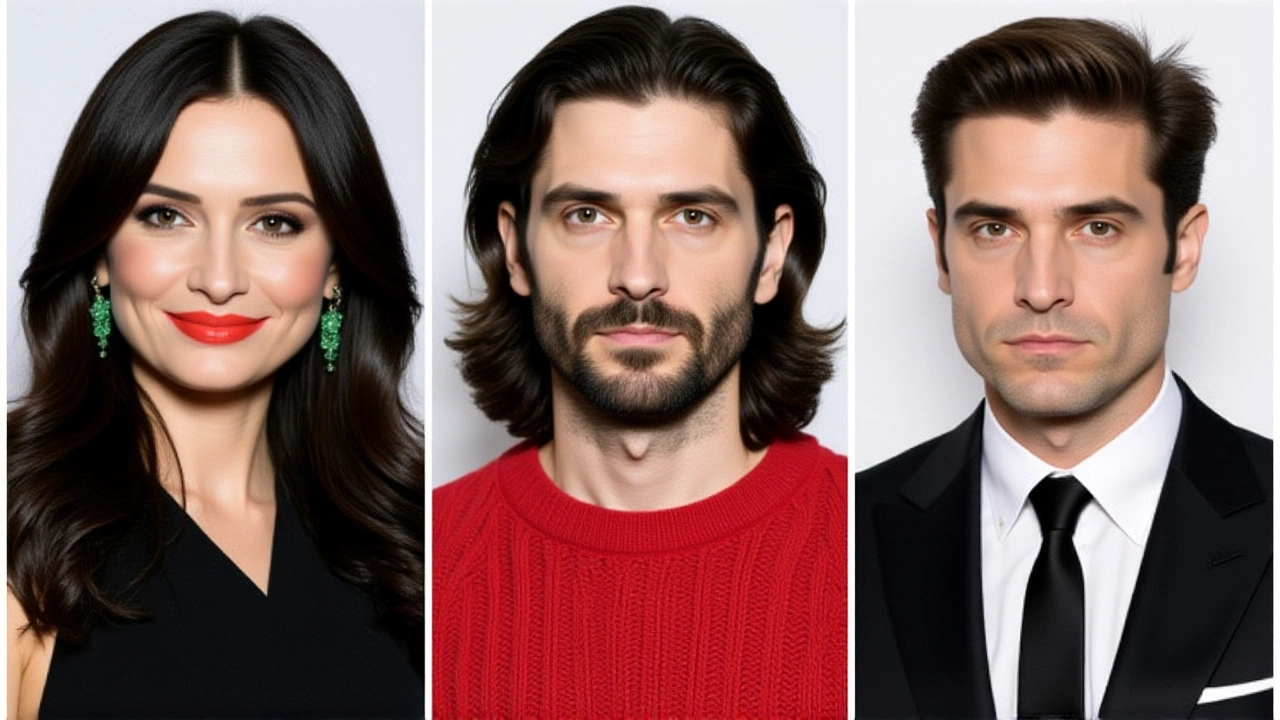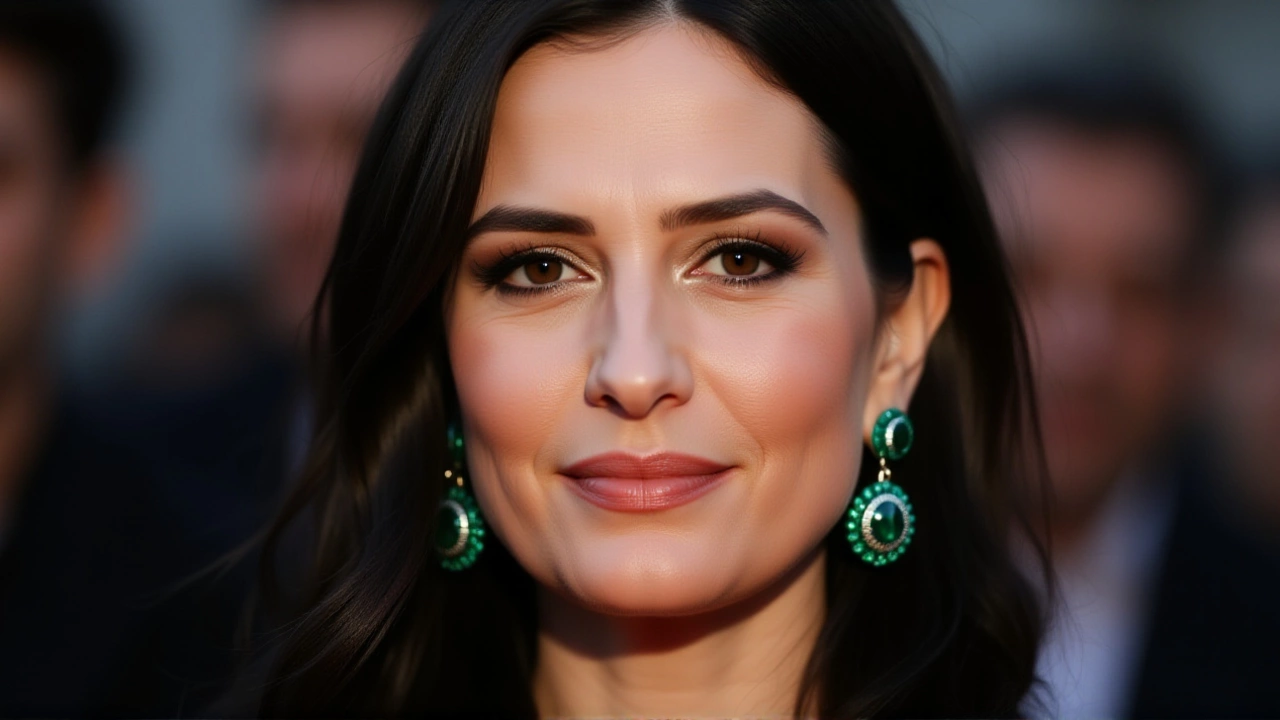Belgian actress Emilie Dequenne died on November 24, 2025, in Brussels at the age of 43, her agent confirmed. The news sent shockwaves through European cinema, where she was revered not just for her raw, unfiltered performances but for the quiet dignity she brought to every role. Dequenne had been fighting adrenocortical carcinoma (ACC), an exceptionally rare adrenal gland cancer, since publicly revealing her diagnosis in October 2023. Her passing—just over two years after that announcement—has left colleagues, fans, and the film world reeling.
A Career Built on Quiet Power
Born on August 29, 1981, in Brussels, Dequenne didn’t chase fame. She chased truth. Her breakout came as a teenager in the 2000 film La Promesse, directed by the Dardenne brothers, where her portrayal of a young woman grappling with moral responsibility stunned critics and earned her the Best Actress award at Cannes. That role set the tone: she didn’t perform—she inhabited. Over two decades, she became a cornerstone of French-language cinema, working with directors who valued emotional precision over spectacle. Her filmography reads like a who’s who of European arthouse cinema. In 2012’s Our Children, she played a mother descending into psychological turmoil with terrifying realism. In 2022’s Close, she portrayed a grieving mother with such subtlety that viewers felt the silence between her words. She appeared in British TV’s The Missing as police officer Laurence Relaud, bringing gravitas to a genre often dominated by louder performances. Even in lesser-known projects like the 2006 film Ecoute Le Temps, she made every frame matter.Tributes from the Highest Ranks of French Cinema
When news broke, the outpouring came not from tabloids, but from the industry’s most respected voices. Marion Cotillard, the Oscar-winning French actress behind La Vie en Rose, posted a heartfelt message in French: “You have been and will be a source of infinite inspiration for me. I will forever cherish what we shared.” Cotillard, known for her own emotional depth, admitted she’d studied Dequenne’s work—something few actors say about peers. “I will always find this unjust,” she wrote. “I loved her. I will miss her.” Eva Green, the French-Belgian star of Miss Peregrine’s Home for Peculiar Children and 300: Rise of an Empire, echoed that sentiment with poetic sorrow. “Emilie was already a star,” Green wrote on Instagram, recalling their first meeting at drama school. “Humble, encouraging, so full of light and pure kindness.” Green added: “Her death has left me stunned... heartbroken... as it has left all those who knew her, and even those who knew her only in her films. She was grace, light, and all things excellent.” The contrast between their fame and Dequenne’s quiet life made the tributes even more powerful. While Cotillard and Green appear on global red carpets, Dequenne rarely did. She gave interviews to understand, not to promote. She worked because she had to—because the stories demanded it.
The Rarity of Her Battle
Adrenocortical carcinoma affects just 1 to 2 people per million annually, according to the National Cancer Institute. It’s aggressive, often diagnosed late, and has a grim prognosis. Dequenne’s public disclosure in October 2023 was rare—most patients keep such diagnoses private. But she chose to speak out, perhaps to raise awareness, perhaps to reclaim agency. Her honesty gave others facing rare illnesses a voice. No one knows if she sought experimental treatment or focused on quality of life. The details remain private, as she would have wanted.What Her Death Means for European Cinema
Dequenne wasn’t a household name in Hollywood, but she was a titan in the world of European film. Her absence leaves a void in stories that explore trauma, motherhood, and moral ambiguity—themes she mastered. Directors like the Dardennes, Lukas Moodysson, and Olivier Masset-Depasse built films around her ability to convey volumes without speaking. Her final role in Close (2022) was a quiet masterpiece, a performance that lingered long after the credits rolled. In a time when cinema often prioritizes spectacle, Dequenne reminded us that stillness can be revolutionary. She didn’t need to shout. Her silence was louder than any monologue.
What Comes Next
A memorial service is expected to be held in Brussels, though details remain private. There are rumors of a retrospective at the Cannes Film Festival in 2026, and several of her films are being re-released in theaters across France and Belgium. Her estate has not announced plans for a biography or archive, but insiders say her notebooks, filled with character notes and handwritten observations, may one day be shared. For now, her legacy lives in the performances that moved audiences without ever asking for applause.Frequently Asked Questions
What was Emilie Dequenne’s most acclaimed role?
While Dequenne received critical praise for many roles, her breakthrough performance in the 2000 film La Promesse earned her the Best Actress award at Cannes at just 18 years old. Many critics consider her portrayal in the 2022 film Close as her most emotionally devastating work, where she conveyed profound grief with minimal dialogue.
How rare is adrenocortical carcinoma (ACC)?
Adrenocortical carcinoma affects only 1 to 2 people per million each year, making it one of the rarest cancers. It’s often diagnosed at an advanced stage due to vague early symptoms, and survival rates remain low—fewer than 40% of patients survive five years after diagnosis, according to the American Cancer Society.
Why did Marion Cotillard and Eva Green speak out so publicly?
Both actresses admired Dequenne not just as a performer but as a person who embodied authenticity in an industry often focused on image. Cotillard, who won an Oscar for a role requiring deep emotional transformation, said she studied Dequenne’s work. Green, who shared Belgian roots, called her a mentor in spirit. Their tributes reflect how deeply she impacted those who knew her, even briefly.
Did Emilie Dequenne ever work outside of French-language films?
Yes. She appeared in the British TV series The Missing as police officer Laurence Relaud and played Jeanne in the French adaptation of The Girl on the Train. Though primarily known for European cinema, her performances in English-language productions demonstrated her versatility and ability to cross linguistic and cultural boundaries.
What was Dequenne’s approach to acting?
She favored deep preparation and emotional honesty over technical showmanship. Colleagues described her as someone who lived inside her characters for months, often avoiding social events during filming to stay immersed. She rarely gave interviews and refused to discuss her personal life, believing the work should speak for itself.
Will her films be available to stream or purchase?
Several of her key films—including Close, Our Children, and La Promesse—are already available on streaming platforms like MUBI and Criterion Channel. A curated box set of her most significant works is reportedly in development by Belgian film archives and expected to launch in early 2026.
